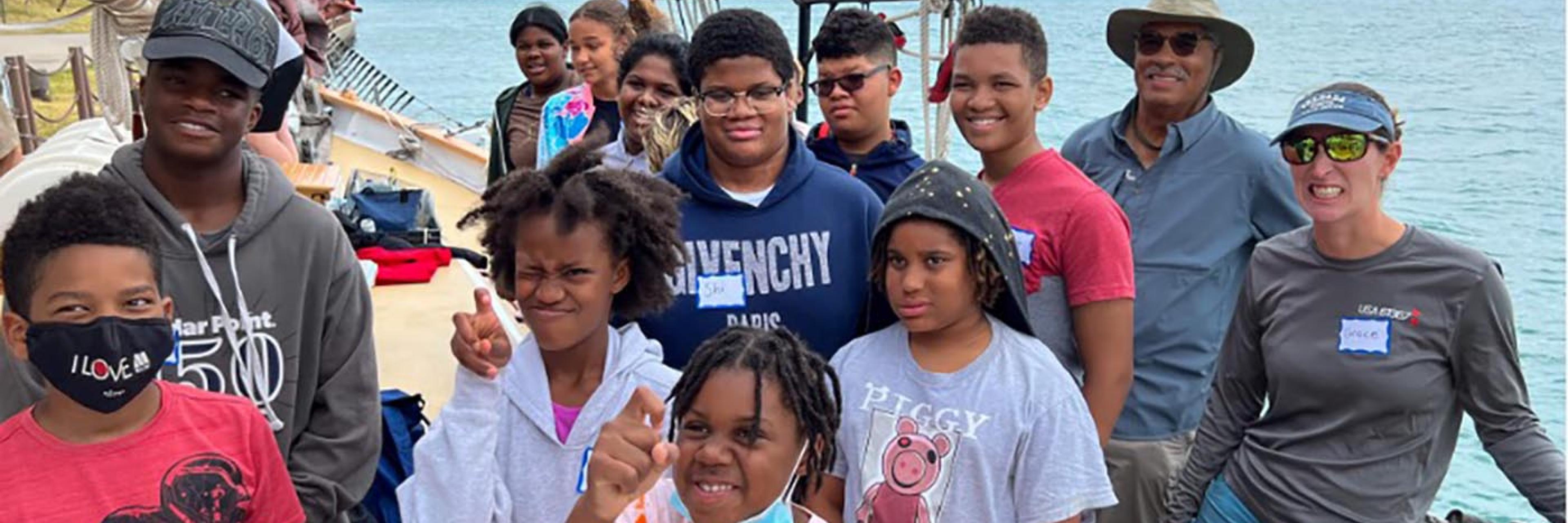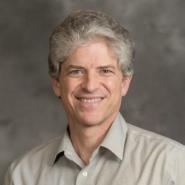
Detroit River Story Lab
The Detroit River Story Lab participates in ongoing regional efforts to rethink, from the ground up, the ways we constitute and deploy public spaces as touchstones of collective memory and catalysts of belonging. Both locally and nationally, we live in an era of restorying. From the toppling of monuments that celebrate racism and white supremacy to the recovery of long-submerged histories of violence and suppression, impassioned reckonings with the reified emblems of our shared public life demonstrate the inadequacy of rigid symbolic forms before the fluidity of social change. The Detroit River Story Lab takes its inspiration from the increasingly manifest need to recast static and monumentalized narratives in favor of forms of storytelling that are inclusive, contingent, capacious and as complex and immediate as the river itself.
Rationale
Our overarching goal for the next several years is coalition and capacity building, both along the river corridor and within our institution, for reconnecting communities with the river and the transformational power of its multi-layered stories. The project will be organized around three principal, high-impact research objectives in support of this goal: 1) the elevation of marginalized forms of place-based narrative knowledge, 2) sustained investigations of the forms, functions, and mediums of narrative infrastructure in both theory and practice across the disciplines, and 3) the iterative design and development of novel and transformative scholarly approaches to public engagement that address emergent community needs and university priorities in the post-pandemic era.
Strategy
Detroit River Learning Lab: Building on the success of the binational Resistance on the River curriculum that DRSL has co-developed over the past 18 months with the Detroit River Project and is currently piloting in 20+ middle schools in Michigan and Ontario, we will continue to develop an interlinked set of open-access modular resources and other informal learning platforms that center river stories. Our summer Skiff & Schooner program, a newly prototyped Detroit River Timeline, and an innovative Carbon Emissions Mapping Interface, all designed to support engaged place-based learning activities for students in local schools and youth-serving organizations, offer examples of our long-term aspirations in this area. Current partners in these efforts include the School at Marygrove, Cass Tech High School, Belle Isle Conservancy, the Detroit Historical Society, Inland Seas Education Association, and the Green Door Initiative. Through this project component, we will co-design and field-test, in close collaboration with and in response to the priorities of teachers in partnering schools, a robust set of river-themed teaching and learning materials, incorporating approaches from the social and environmental sciences, the humanities, and the arts, and made freely available to local schools and other organizations. Ultimately, such resources will serve as building blocks and proofs-of-concept for a dedicated, on-site Detroit River magnet school or program, an idea that has been floated as an aspirational goal by a number of our partners, including the Detroit Riverfront Conservancy.
Detroit River Digital Memory Commons: Central to the Lab’s long-term vision is the creation of digital infrastructure dedicated to collecting, archiving, and amplifying the stories of past and present-day river communities on both the US and Canadian shores. This digital humanities component integrates place-based public engagement with the ability of computational tools to advance critical and interpretive project capacities. Structured around a web-based platform featuring participatory interfaces and hyperlocal storybanks incorporating maps, photographs, local histories and interviews, archival documents, and other materials, the Memory Commons will be accessible online and on site, by means of QR codes and a network of interactive, multi-media site installations in public spaces up and down the river. Organizations partnering with us in early-stage data collection and prototyping include the Detroit Historical Society, the Belle Isle Conservancy, and Detroit Parks and Recreation. Our aim here is to create a sufficiently robust and adaptable set of archives and interfaces to eventually support the storytelling and engagement priorities of a range of organizations committed to narrative place-making at public sites–including greenways, parks, museums, and monuments–along the river corridor.
Detroit River Community Journalism Initiative - DRSL has sponsored multiple graduate students in river-themed journalism internships that have, to date, yielded six published articles and two episodes of a new river-themed podcast series. While continuing to provide this form of direct, in-kind support for local narrative infrastructure, we will also co-develop, at the behest of our journalism partners, a modular, online citizen journalism training program to build local capacity in support of this critical component of community self-empowerment. In collaboration with U-M’s Center for Academic Innovation and Planet Detroit, we will help to address the pressing need to make a high-quality, Detroit-based introduction to the fundamentals of journalistic research and practice accessible to the increasing number of residents who feel called to contribute to the resurgence of community journalism but for whom the tuition fees of traditional professional programs pose a significant barrier. As the initiative develops, we anticipate the creation of multiple learning modules and the scaling up of the program to reach broader regional and perhaps national audiences.
Methods
Launched in the fall of 2020 in response to the growing nationwide crisis of narrative infrastructure , the Detroit River Story Lab (DRSL) is a collaborative, public-facing research initiative that leverages the sociocultural, historical, and ecological centrality of the Detroit River corridor to reimagine it as a case study in narrative placemaking and civic renewal. Beginning with the premise that place-based storymaking is vital to sustaining democratic values and community capacity for self-determination, the Lab partners on innovative projects designed to better understand, but also to strengthen and revitalize, the narrative capacities of Southeast Michigan communities through the story-telling channels of non-profit journalism, place-based education, and public history/public art. By leveraging university expertise in support of ongoing, locally-led efforts to reconnect communities with the river and its multi-layered stories, the Lab integrates the interpretive and projective capacities of the urban humanities and environmental sciences in the pursuit of scalable narrative interventions that could contribute to a more pluralistic and spatially just society.

